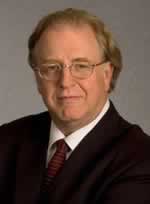
Commentary
Inside the First Amendment
By Gene Policinski
First Amendment Center vice president/executive director
When and where do we draw the line on free speech?
That’s “we” as in you and I, and our fellow citizens — and the “where” increasingly involves the Internet.
The First Amendment generally prevents our government from drawing such a line in all but a very few, tightly defined areas of speech: true threats, harassment, fighting words, child pornography and — because children may be listening — on broadcast television and radio during certain hours. The law also gives us a measure of protection from, or at least compensation for, speech that defames or portrays us in public in a false light.
But in general, we’re free to say what we want, when we want, in just about any place we choose. Therein is a modern-day dilemma: Many of our fellow citizens do just that, in ways that are amplified by the Internet’s reach. As a result, nearly two decades into the World Wide Web era, speech that once would have been limited to a private snarl, sprayed onto a wall or uttered to a small group or friends or colleagues now goes global with the touch of a few keys.
Admittedly, the unrestricted comment, however harsh, was something with which the nation’s Founders were familiar when they provided for freedom of speech. From allegations of imbecility to intimate aspersions on character and conduct, all was fair game for publishing in the bluntest of terms in the newspapers and opinion journals in the earliest years of the Republic.
And snide, vicious comments about the physical characteristics and personal and moral habits of elected officials and other public figures, friends and even family have been with us for as long as there have been people and places where gossip could be traded.
By now, most who traverse the Net likely have run into the vile, the profane, the distasteful speech that seems always to lurk just a few comments down on so many Web pages, regardless of the discussion or issue.
Case in point a few days ago: Retired journalist Deborah Howell, former ombudsman at The Washington Post, died tragically after being struck by a car while on vacation in New Zealand with her husband. Melinda Henneberger, editor in chief of Politics Daily, wrote that after her online publication posted a story on Jan. 2 about Howell’s death, she was shocked by what some people posted in response.
Henneberger wrote that on Jan. 4, “I wandered into our comment section, as I often do, to get a sense of who is reading and what they are thinking,” and found “a shocking number of comments to the effect that since Howell was in the news business, she must have been a lefty, so how fabulous she’d been killed.” Many such comments, she wrote, were “from readers who by their own account had five minutes earlier never even heard of Deborah Howell.”
Politics Daily took down what it considered the most offensive remarks, with Henneberger saying the site had decided unapologetically to apply its own standards to what it would allow, which she described as a free-speech version of “No shoes, no shirt, no service.”
This issue isn’t confined to conservatives or liberals, national or local Web sites or any particular topics. Henneberger said the same kind of crude blather followed a recent obituary of conservative publisher Irving Kristol and the news that radio talkmeister Rush Limbaugh was ill in Hawaii.
It’s not news that people make remarks in bad taste. What is making headlines is that such postings are prompting some sites to shut down comment sections.
Over the New Year holiday, in Illinois, the newspaper Web site Pantagraph.com suspended reader comments on new local stories for a brief “cooling off period” because far too many postings included “personal attacks and/or assertions that have nothing to do with the story.” The site was not the first to close down reader comments, with some making the change permanent, nor do I suspect it will be the last.
Nothing in the 45 words of the First Amendment mandates tastefulness, political correctness or even that we identify ourselves when we speak to our fellow citizens. But clearly the value the Founders attached to free speech was the importance of unfettered discussion and discourse in promoting the public good.
How terribly ironic — and disappointing — it will be if we find that even as technology has made it possible for more people than ever before to express themselves freely, many don’t say anything worth hearing.
Gene Policinski is vice president and executive director of the First Amendment Center, 555 Pennsylvania Ave., Washington, D.C., 20001. Web: www.firstamendmentcenter.org. E-mail: [email protected].








